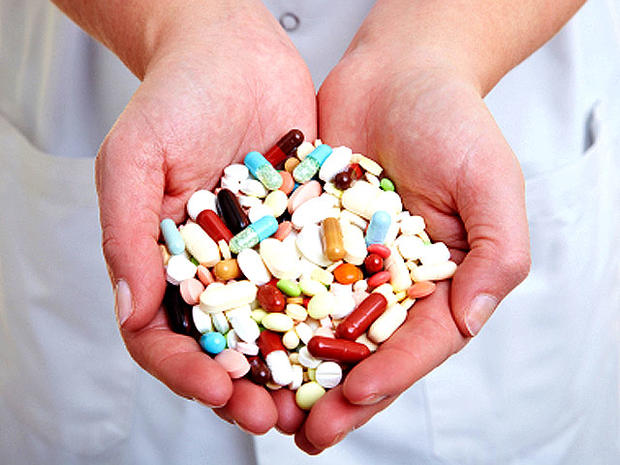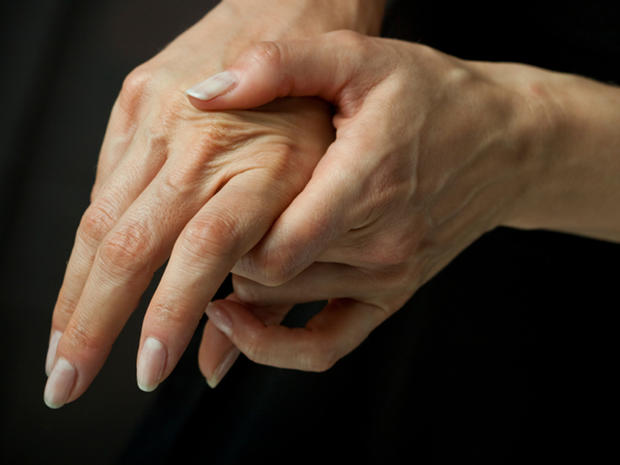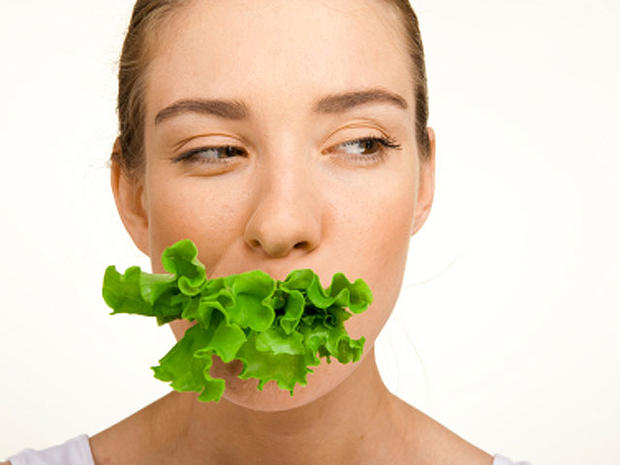Bogus beliefs: 11 medical "truths" now overturned
When health advice we've long taken as gospel suddenly does a 180, it can sometimes leave us scratching our heads. "Medical reversals" come about when new scientific evidence comes along disproving existing dogma, causing doctors to change their tunes about tests, drugs, or treatments. In 2011, we've had so many reversals that it's enough to give us whiplash, says Dr. Orly Avitzur, medical adviser at Consumer Reports.
Keep clicking for a look back at 11 of 2011's "overturned health truths," according to Dr. Avitzur from the Dec. 10 issue of Consumer Reports Health...
Take multivitamins to improve your health
There's no proof that multivitamins prevent chronic diseases or premature death - yet 40 percent of Americans take them. Two large 2011 studies have discredited their use: One study found no change in heart disease, cancer, or deaths among multivitamin users and the other suggested that multivitamins and other supplements, particularly iron, might actually increase the risk of death in older women.
Ask your doctor about taking vitamins or minerals if you've severely cut calories, are a vegan, have a digestive disorder, or are breast-feeding, pregnant, or trying to become pregnant.
Feed a cold, starve a fever
There's no scientific evidence to support grandma's advice. In fact, if you're running a fever, sweating, or have a stomach bug, you should strive to be well-hydrated. Starving stresses your body, which is already under enough stress. Good nutrition and plenty of fluids can speed recovery and prevent dehydration. Ditto for the common cold and other respiratory ailments since fluids help keep the lining of your nose and throat from drying out.
One thing grandma was right about? Studies have found that chicken soup reduces symptoms by loosening nasal secretions, easing sore throats, and preventing the inflammation that makes cold sufferers feel so rotten.
Stretch before and after exercise
It makes no difference. A study presented at a meeting of the American Academy of Orthopaedic Surgeons in 2011 found that stretching before running doesn't prevent injuries. It did suggest that the risk of getting hurt is higher for runners who are heavier or older, run more miles, had an injury in the past four months, or switched from their normal pre-run routine - especially those who usually stretched and were asked not to.
Body mass index is best for diagnosing weight problems
Your BMI - calculated using your height and weight - has long been considered a gauge for obesity. But the index doesn't account for other factors including body-fat percentages, fitness, gender, race, or age. According to a recent study involving nearly 32,000 people, the BMI for obesity (30 and above) didn't apply to half of the people with excess body fat. The index also doesn't reflect where you carry your fat, which is key because people with lots of belly fat are at higher risk for obesity-related diseases.
What's a better way to tell if you're fit or fat? Experts now suggest a measure that combines BMI with waist circumference. A waist measurement greater than 40 inches for men or 35 inches for women indicates increased risk for obesity-related diseases.
Get dental x-rays once a year
Has your hygienist slapped on a lead vest as soon as you settled into the dentist chair? If so, your dentist isn't in step with current American Dental Association guidelines. To minimize radiation exposure, the ADA advises dentists to examine patients first and then order X-rays if and where they're needed.
Bitewing X-rays - the films directed at specific teeth - are only necessary every two to three years, provided that you don't have gum disease or a tendency to get cavities.
Eat carrots to improve your eyesight
Carrots are a major source of vitamin A, which promotes good vision, especially in low light. But most Americans get enough vitamin A anyway. It's found in yellow, orange, and dark green produce along with milk, cheese, eggs, liver, and fortified cereals.
Drink at least 8 glasses of water daily
This advice lives on despite zero scientific support. The adage that if you're thirsty, you're already dehydrated is unsubstantiated. The Institute of Medicine reports that most healthy people get the water they need by letting their thirst guide them and by consuming it through various sources, including food.
Some people also load up on liquids as part of a diet, but it's not clear that doing so will help with weight loss. One study found that consuming food with high water content, like soup, makes you feel fuller and less hungry, but drinking the same amount of water as a beverage doesn't.
Cracking your knuckles causes arthritis
Does this bad habit lead to osteoarthritis of the hand? According to a 2011 study published in the Journal of the American Board of Family Medicine, the prevalence of osteoarthritis was about the same among those who cracked their joints and those who didn't. But it's still best to stop. Studies have shown you're more likely to get hand swelling and lose grip strength.
Yearly checkups save lives
There's little high-quality evidence that having an annual physical can keep you healthy. In 2011, the U.S. Preventive Services Task Force recommended that most people skip two standard components of the routine checkup for some patients. The task force recommended against yearly prostate-specific antigen (PSA) blood test for healthy men because the test wasn't shown to save lives, but was linked to increases chances of substantial harm from subsequent treatment. The task force also recommended against routine electrocardiogram (EKG) screening to detect heart disease in people without symptoms.
Eggs are bad for your cholesterol
More worrisome are saturated fats - found in full-fat meat and dairy products - and trans fats that lurk in some margarines, fast foods, and baked goods. People with normal levels of LDL (bad) cholesterol who restrict those fats can feel free to eat up to seven eggs a week. Those with high LDL should limit themselves to four or whip up some egg whites.
Only eat organic
That depends. Skinless or soft-skinned produce- such as nectarines, sweet bell peppers, and many produce grown in other countries may harbor pesticide residues. Produce with skins or peels that aren't eaten - including bananas, citrus fruits, onions, and pineapple - pose a low pesticide risk for consumers, as do meat, poultry, grains, flour, and oils.











